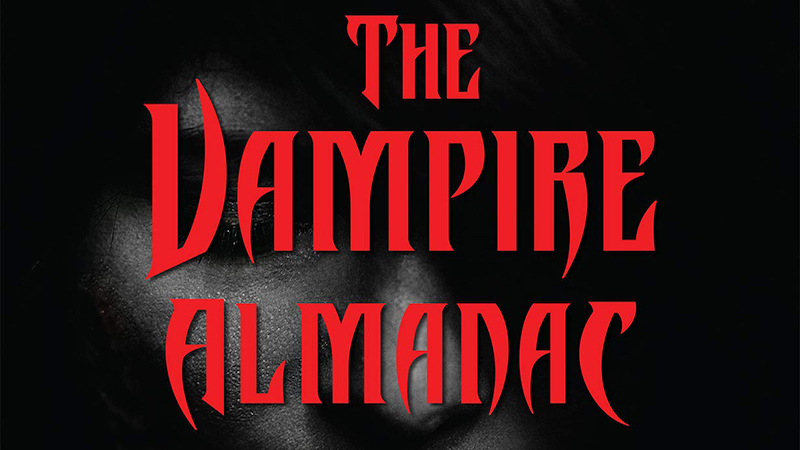One of the foremost experts on the vampire genre is scholar J. Gordon Melton, author of The Vampire Book, which is currently being revised and expanded as this October’s The Vampire Almanac: The Complete History. Melton is also featured on the current episode of the Vampires & Slayers podcast, during which he discusses his own fascination with the genre and how it’s evolved over the years. “Oh, it’s certainly evolved,” he laughs. “In the 19th Century it was poetry and short stories and the stage, and then Dracula happens and Dracula is a real watershed. There are several vampire novels that are published the same year as Dracula. Then when Dracula comes to the stage, you have to make him nice enough to where he can enter a British drawing room. So the story begins to evolve then when you start with the old vampire in the village that comes back from the dead to claim his family and friends as his first victims who then becomes somebody in a tux and is presented on the British stage. That’s the first thing that happened.

“Then,” he continues, “Bela Lugosi becomes a star and is getting all this fan mail and 90% of it is from women. So the vampire as monster becomes a sex object. Then he becomes a comedic object — Abbott and Costello Meet Frankenstein — and goes into color. Christopher Lee reinvents him into this sexy vampire who’s a bad guy, and with Hammer, every movie pushes some buttons on the censorship panel. The first time he turns to the audience, he has this beautiful woman in his arms and shows his teeth, which Bela Lugosi never did, and sinks his teeth into her neck. This is a crucial moment in time. Then the next thing that happens is Richard Matheson’s I Am Legend, which makes vampires respectable and science fiction. That’s a key moment, too, followed by the conflicted vampire in Dark Shadows, Fred Saberhagen’s The Dracula Tapes novel, there’s Chelsea Quinn Yarborough [the Count of Saint-Germain book series] and Anne Rice. Their first novels are published within a year and a half of each other. You start getting a number of vampire novels each year for the generation. The final thing that ends the century is Buffy the Vampire Slayer.”

It’s his feeling that Buffy became the television series that has had more discussion devoted to it than any other, not just in terms of vampires but the medium in general. “Buffy is way out ahead of Star Trek,” he says, “and then it’s The X-Files and everything else. There’s still a biannual Buffy scholarly conference where 150 to 200 scholars get together ever two years to talk about it. And then Twilight comes along, and Twilight and Anne Rice’s Vampire Chronicles are the only two multi-volume vampire sets that are in the Top 50 all-time best selling novel series. That’s all-time sales, which is quite an accomplishment. At this point, it’s hard to say what’s to come, but basically the boom of the genre peaked around the turn of the century and it’s gradually faded out. What I think we’re going to see now is that there will be a modest number of vampire novels and vampire movies that will continue forever. Television will be the place for at least the next decade where the genre shines, but I think it will be with us for the long haul.”
For much more from J. Gordon Melton, check out the Vampires & Slayers podcast.
